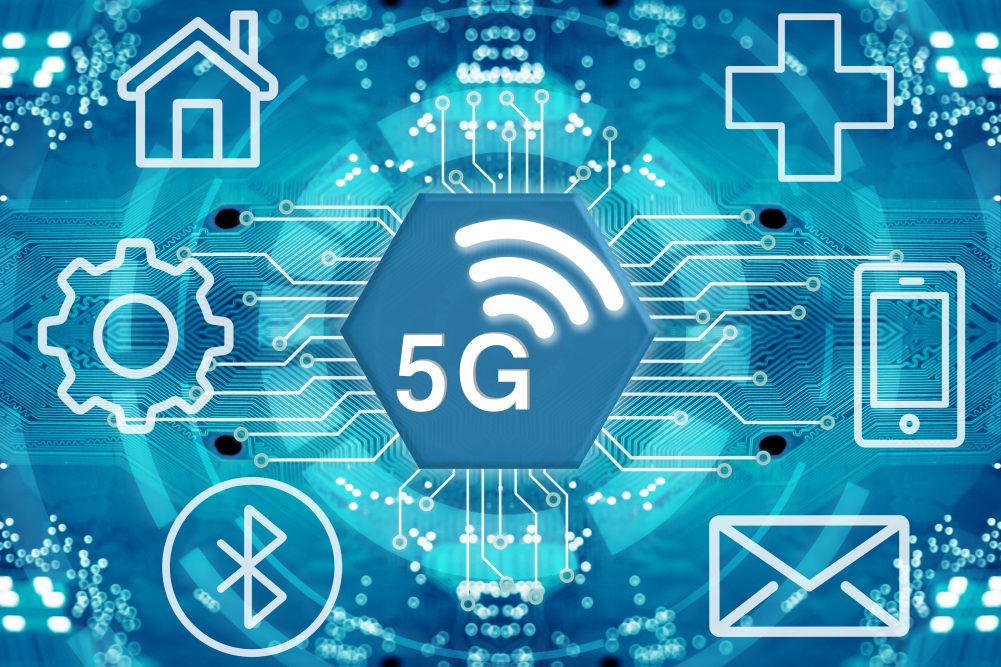Exploring the Role of 5G in Transforming Smart Cities
5G technology is a key enabler in the development and transformation of smart cities, offering transformative capabilities that can reshape urban living. By providing faster, more reliable, and low-latency connectivity, 5G has the potential to support a wide range of smart city applications, enhancing everything from transportation to energy management and public safety. Here’s a closer look at the role of 5G in transforming smart cities:
1. Enhanced Connectivity for IoT Devices
Smart cities rely on the Internet of Things (IoT) devices—sensors, cameras, traffic lights, smart meters, and more—that collect and transmit data. 5G’s high-speed, low-latency capabilities enable a massive increase in the number of connected devices, allowing smart city systems to work more efficiently and in real time. With 5G, millions of IoT devices can be interconnected, creating a robust network for data exchange that powers smart city applications.
2. Smart Transportation and Autonomous Vehicles
5G will be a critical enabler for intelligent transportation systems and autonomous vehicles (AVs). Its ultra-low latency allows for near-instantaneous communication between vehicles, infrastructure, and traffic management systems, essential for the safe and efficient operation of AVs. Real-time data from smart traffic lights, road sensors, and surveillance cameras can optimize traffic flow, reduce congestion, and improve safety.
In addition, 5G will enhance vehicle-to-everything (V2X) communication, which enables vehicles to interact with their surroundings, including other vehicles, pedestrians, and infrastructure. This technology will play a crucial role in making smart cities safer and more efficient in terms of mobility.
3. Smart Grids and Energy Management
With 5G, smart cities can optimize energy distribution and consumption through smart grids. 5G’s fast and reliable communication enables real-time monitoring of energy usage, allowing utilities to better manage supply and demand, prevent outages, and even incorporate renewable energy sources more effectively. Additionally, it allows for more granular control of distributed energy resources, such as solar panels, batteries, and electric vehicles, creating more sustainable and efficient energy systems.
4. Public Safety and Emergency Response
5G will enable real-time surveillance, monitoring, and communication in emergency situations, improving public safety. High-definition cameras, smart sensors, and AI-powered systems can provide authorities with immediate information during emergencies like fires, accidents, or crime incidents. The real-time data from various sources can be processed and analyzed instantly, enabling faster decision-making and more effective responses.
Moreover, 5G's low latency improves the coordination of emergency response teams, including ambulance, police, and fire departments, by providing them with live updates, helping them to navigate traffic more efficiently and arrive at emergency sites more quickly.
5. Healthcare and Telemedicine
5G will play a pivotal role in transforming healthcare in smart cities, particularly through telemedicine and remote patient monitoring. With high data throughput and ultra-low latency, doctors will be able to conduct high-definition video consultations, perform remote surgeries using robotic systems, and monitor patients in real-time using connected devices. For patients with chronic conditions, continuous monitoring through wearables will be facilitated, improving healthcare outcomes and reducing hospital visits.
6. Smart Buildings and Infrastructure
5G will also transform how buildings and infrastructure are managed. By integrating IoT devices in buildings, smart systems can monitor things like air quality, lighting, temperature, and energy usage, adjusting them based on occupancy and environmental conditions. This can result in significant energy savings, improved comfort for inhabitants, and increased sustainability.
Additionally, 5G's ability to support low-energy, high-density networks makes it ideal for managing smart infrastructure, such as waste management systems, smart street lighting, and water management systems. Real-time data from these systems allows cities to better monitor and optimize resource use.
7. Environmental Monitoring
5G will facilitate large-scale environmental monitoring by enabling real-time data collection and transmission from sensors deployed across the city. These sensors can track air quality, water quality, noise levels, temperature, and other environmental factors. The data can be processed quickly to predict pollution levels, assess climate change impacts, and identify areas of the city that need immediate attention or intervention. This will lead to more effective environmental policies and actions.
8. Smart Governance and Citizen Engagement
5G can improve governance by enabling more responsive and interactive civic services. Citizens can interact with government platforms in real-time, reporting issues such as road damage, waste collection problems, or public service inefficiencies through apps or connected devices. In turn, the government can leverage 5G-powered communication to quickly address these issues, track performance, and provide timely updates.
Additionally, the seamless connection offered by 5G can support innovations like smart voting systems, enhancing transparency and participation in democratic processes. It also supports large-scale data analytics for better decision-making and policy development.
9. Tourism and City Experience
Smart cities can leverage 5G to enhance the experience for tourists and residents alike. With high-speed connectivity, augmented reality (AR) and virtual reality (VR) applications can flourish, offering immersive experiences for tourists or helping residents navigate the city efficiently. For instance, 5G can support interactive city tours, augmented signage, or smart kiosks that provide real-time information about events, transport schedules, and local services.
10. Seamless Integration of Smart Systems
Finally, 5G will facilitate the integration of various smart systems within a city. Whether it's transportation, energy, public services, or environmental monitoring, 5G provides the backbone for seamless communication between disparate systems. By connecting data from different sectors, cities can create a cohesive, responsive, and efficient urban ecosystem that continuously adapts to the needs of its residents.
Conclusion
5G will be a cornerstone technology for the development of smart cities, enabling unprecedented levels of connectivity, speed, and efficiency. From intelligent transportation and enhanced healthcare to energy management and improved public safety, the capabilities of 5G will help cities become more sustainable, livable, and efficient. As smart cities continue to grow, 5G will provide the infrastructure necessary to support these dynamic, data-driven urban environments, ultimately improving the quality of life for residents.
